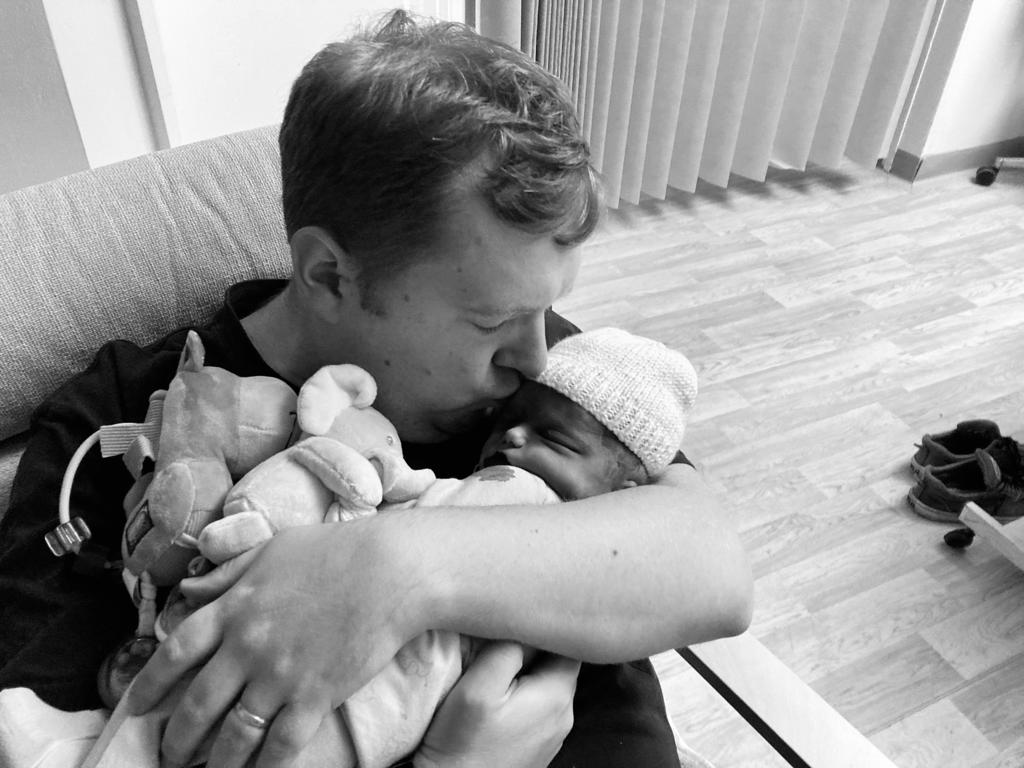Returning to work as a grieving father
To mark Baby Loss Awareness Week, Adam shares his experience of returning to work after losing Joshua and after another heartbreaking loss.
The aftermath of losing Joshua
Following the devastating and unexpected death of my son Joshua at 41 weeks in 2022, the last thing my wife and I wanted to think about was work and any financial implications.
In my wife’s case, as is the case for anybody who loses a baby after 24 weeks, she was entitled to her full maternity leave as planned. She opted to return to work sooner, but still had a few months off.
In my case, I knew I was entitled to my 2 weeks paternity leave. I wasn’t really sure beyond that what I was entitled to and whether I just needed a sick note. To complicate things, I actually have two jobs, working as a mental health professional in the NHS and also as a University Lecturer.

Concentrating on what was most important
The idea of trying to figure all this out, amidst processing my grief, was daunting. However, I feel very fortunate to have been well supported by both employers in this regard, something that sadly is not the case for many who go through this darkest of journeys.
I was told to take as long as I needed, and through a mixture of my entitled paternity leave, parental bereavement leave and emergency/carers leave across the two roles, I knew I had a month before I even got into using up sickness leave.
This gave me time in those early days and weeks to concentrate on what was most important, supporting my wife and 2-year-old daughter. Then, after a few weeks, I was able to discuss sick notes with work and the GP and take a bit longer.
In all, I had 10 weeks off from lecturing. I could have had longer if I wanted, but I felt I needed to get some sense of routine back and returning to one of my roles, the less emotionally taxing one, felt like something I could do.
Why I told people about my loss
Everyone was very supportive, both colleagues and students. Everyone was aware of what happened as I was happy for them to be told. I wanted them to know for two reasons:
1) To normalise baby loss. why shouldn’t it be spoken about?
2) My lecturer role is training mental health professionals. My colleagues and I have now ensured baby loss is discussed as part of our perinatal mental health teaching, so these trainee practitioners will be aware of resources and signposting. They should also feel able to either support their patients directly or guide them to the most appropriate place for that person’s needs.
Going back to work
In terms of my clinical work, assessing and treating mental health difficulties such as depression and anxiety, I needed much longer.
The idea of returning to sitting (physically or remotely) opposite people as they opened up about their troubles was a terrifying prospect in my early stages of grief.
Either, I would feel I was taking on their burdens with my own which felt too much to bear, or (and more worryingly for me personally) I would be sat thinking ‘I don’t want to hear about your work stress or family drama, I’ve just lost my child’ and be unable to tap into my empathy, which I rely on so much in that role.
I took the time I needed, and after the meetings about postmortem results and investigations around Joshua’s death, I went back to work. It was around 4 and a half months of time out. There was then a gradual phased return to full clinical duties after about another 4 months.
The importance of a supportive employer
I definitely feel I was able to do the right thing for myself and my family by taking the varying degrees of time out for each role.
Despite my understandable anxiety and hesitation around returning to work, I couldn’t have asked for better teams to work in and return to.
This was important too, when 8 months after losing Joshua, we experienced another loss via miscarriage at 11 weeks. I had to take some more time off, which was only a couple of weeks, not as much as I would have liked. But again, I was well supported in both roles.
Hopefully through further normalising, societal and governmental changes and education of employers (and employees so they know what they’re entitled to) everybody will be as lucky.
